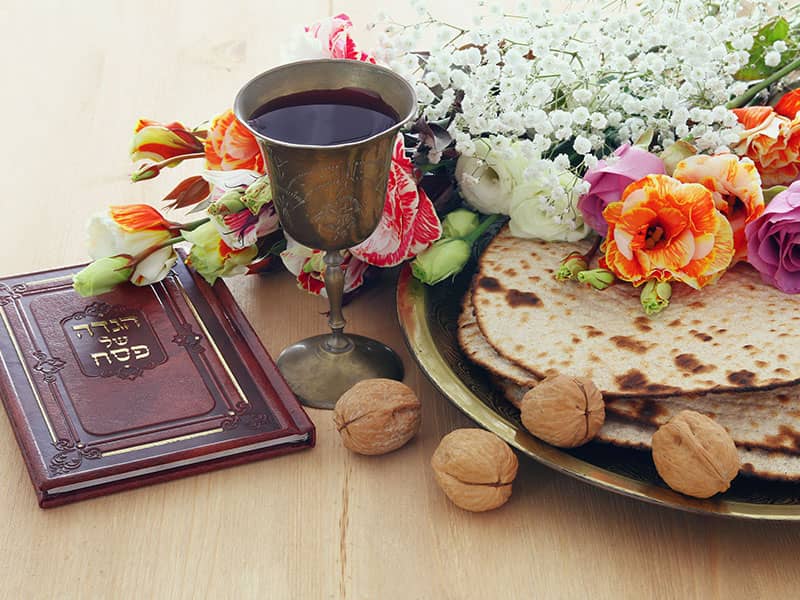Hanukkah, the eight-day festival that commemorates the victory of a band of Jews over their Hellenistic rulers more than 2,000 years ago, is about more than menorahs and dreidels. It is, Tsuruoka says, "about the miracle of a small handful of Jews who were able to sustain their faith."
If anyone can talk about resisting assimilation, it is Tsuruoka, a third-generation Japanese-American who converted to Judaism, and the small band of Long Island Jews who hired him as their spiritual leader.
"[Hanukkah] is a classic example of how Jews resist assimilation," Tsuruoka said. "Because separating yourself from the rest of the world is an important concept of Judaism."
Tsuruoka, 54, has thought long and hard about Jews and separation. "I'm a double minority," he said.
Four months ago, this former chief programming officer for Planned Parenthood of America began serving Temple Isaiah, a small Reform congregation in Great Neck, a largely well-to-do community on Long Island that is heavily Jewish.
As far as he knows, Tsuruoka is the only Japanese-American leading a synagogue. There are, however, other rabbinic students currently at the Reform movement's Hebrew Union College-Jewish Institute of Religion, he said, and he knows of at least one Japanese-American rabbi who previously led a congregation.
Tsuruoka's conversion came after many years of pondering and study. A self-described "geek" who was born and reared on Manhattan's Upper West Side, he had a lot of Jewish friends. As a child, he attended a Methodist church on West 104th Street that was founded by Japanese immigrants. Still, he was attracted to Judaism. By age 15, he was spending hours in the library of Jewish Theological Seminary, a 12-block walk from his home.
"It's the philosophy, about how people ought to treat each other, and relate to God. Also, it's the insistence on studying and questioning. Christianity, as I perceived it, failed to ask certain questions. In Christianity I never felt the struggle between a person and God that I feel as a Jew. In Christianity, faith alone can save you, and will ultimately make you a good person. But in Judaism, faith comes after you become a good person."
So, at 21, Tsuruoka converted to Judaism. Soon after, he married his Jewish girlfriend, Linda Brody. When their two children -- now 27 and 30 -- were small, the Tsuruokas joined a synagogue.
Up to that point, Tsuruoka said, his relationship with Judaism had been purely intellectual. Now, he became drawn to Jewish ritual. He began attending synagogue. He became president of his temple.
Then, about 10 years ago, Tsuruoka's life took a major detour.
"About 10 years ago," Tsuruoka said, "the rabbi invited me to chant Torah portions in Hebrew for the High Holidays. I began to study Hebrew on my own." Learning the language, he said, opened up the classical Hebrew texts to him. The next logical step, it seemed, was to become a rabbi.
When he told his children of his decision, they told him it was about time.
When asked about his new position as rabbi, he smiles happily. There's a lot to do. On his second day on the job, he officiated at his first funeral. He's done a few bar mitzvahs. Next week he will do his first wedding.
This week, he will celebrate his first Hanukkah. When people call him "rabbi," it still takes his breath away, and seems as much a miracle as the holiday he is about to celebrate.
Terry Joseph, the temple's president, said members chose Tsuruoka unanimously, over eight over candidates, some of whom had 20 years experience.
"It was his love of Judaism, of learning. He has so much spirituality," Joseph said. Some members of this Reform congregation, she said, even think Tsuruoka is "too Jewish."
The congregation of about 125 families was founded 33 years ago by a breakaway group from another Great Neck congregation. But since Tsuruoka's arrival, Friday night attendance has increased dramatically, from about 20 people to as many as 80. People, Joseph said, are hearing about him. And they are curious.
As a convert, Tsuruoka says, his Jewishness is constantly on his mind. It's the most important part of him. Even more than for somebody who was born Jewish, he says, because he had the opportunity to choose.
"Being Japanese is something I'm just comfortable with. But Judaism constantly bubbles up in me. There's a certain euphoria. Every time I put on the tallit, or prayer shawl, it's like the first time."

